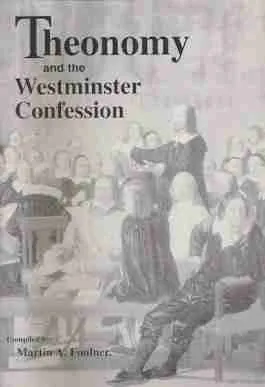Confessional Theonomy versus Lancastrian Theonomy

22 October 2024
In a recent video Luke Saint defended what he calls Lancastrian Theonomy against Stephen Wolfe. He claims that one of the goals of Lancastrian Theonomy is to abolish the office of politician altogether and he argues that in order to achieve freedom. In other words, in Lancastrian Theonomy, there is no office of civil magistrate. Saint argues that history has shown that the political process in which civil magistrates as representatives of the people make decisions have proven to be disastrous. He claims that it has “never worked out” for any nation. He argues for a “non-legislative theonomy” by appealing to Deuteronomy 4 and Deuteronomy 12 as abolishing the legislative function in a theonomy. He then goes on to say that the legislative actions of Israel’s kings constituted abuses.
Of course first of all it must be said that Saint’s position on the civil magistrate directly contradicts Scripture and the Reformed Confessions. Read the 23rd chapter of the Westminster Confession of Faith, article 36 of the Belgic Confession and 30th chapter of the Second Helvetic Confession. The idea that politics has never worked out for any nation is also absurd. What about Reformation Geneva, the Netherlands during the Dutch Golden Age, the Scots and English peoples under the Solemn League and Covenant, the early New England Colonies, the Southern Confederacy, or the Boer Republics? All of these are historical examples of Christian nations with their own constitutions which were all based on the bible as applied to their own people and context.
Furthermore, his interpretation of the texts in Deuteronomy 4 and 12 is way off. The relevant texts in Deuteronomy pertains not to the legislative branch of government, but to the revelation of God through Scripture. The texts in Deuteronomy needs to be understood in light of Revelation 22:18-19. God commands us not to add or remove from the canon at the conclusion of the Old Testament law and again at the conclusion of the apostolic New Testament, i.e. at the beginning of special revelation and at the conclusion of special revelation. What the Deuteronomy texts therefore indicate is that the canon is closed with regard to the law, i.e. that the standard has been set in stone. This does not mean that peoples, as their cultures are sanctified, cannot write or reform their national constitutions to conform to the Bible. While those rights that are truly universal are indeed derived from the reciprocal responsibilities of the second table of the Decalogue, which enumerates our responsibilities in regards to how we treat others, beyond these basic and fundamental rights, civil rights and privileges can vary from time to time and from one nation to another. In fact, after the law had been given even king David continued to enact distinctly national legislation with God's approval (1 Samuel 30:25). The modern attempt to create a universal standard of “human rights” or “natural rights” beyond what is revealed to us by God is aimed at creating a global egalitarian order aimed at universal homogenization. Ironically, Saint is advocating for a similar globalist model by denying peoples’ legislative rights to write their own constitutions. Here it is important to note the wisdom of the great counter-revolutionary philosopher Joseph De Maistre (1753-1821):
But a constitution which is made for all nations is made for none: it is a pure abstraction, a school exercise whose purpose is to exercise the mind in accordance with a hypothetical ideal, and which ought to be addressed to Man, in the imaginary places which he inhabits ... What is a constitution? Is it not the solution to the following problem: to find the laws that are fitting for a particular nation, given its population, its customs, its religion, its geographical situation, its political relations, its wealth, and its good and bad qualities?
Saint also contradicts himself when he says that overfishing an area is not a sin or immoral and therefore it cannot be punished, yet simultaneously claims that “these are problems that I agree with him [Wolfe] we can come together and make a decision on and we can regulate in such a way that we are not punishing people who are not doing anything wrong.” Yet here he does speak of regulation, i.e. functional legislation. Furthermore, overfishing an area is actually immoral according to Scripture as it violates the dominion mandate in Genesis 1:24-26 as well as the command to regard the life of animals in Proverbs 12:10.
While I agree with Saint that no rivers or lakes should be owned by government and that private property rights would solve that particular problem, that still leaves us with the problem of the seas, over which no private property owner has a say. Furthermore, in the example of overfishing, both Saint and Wolfe approach the issue with liberal individualist presuppositions. Wolfe claims that one person fishing would not be immoral, and if a hundred people did it, it would be impossible to determine who committed the crime. Saint simply responds by saying that there would be no crime committed. Both, however, fail to take into account the moral implications of collective actions performed by collective units such as families, tribes, and nations. The law pertains to familial and national life just as much as it does to individual life. A people, a church, a family can commit a crime just as much as individuals can. The judgement over Achan’s family as a family as a family in the Old Testament and the judgment over the churches of Asia minor as churches in the New Testament clearly show this.
Saint rightly notes the vital role of custom in a people regulating themselves. But he is wrong in claiming that common law was never codified. The Magna Carta and the US constitution are well-known examples of the codification of common law by a people for their own specific culture and context. This is by no means opposed to historic Confessional Theonomy.